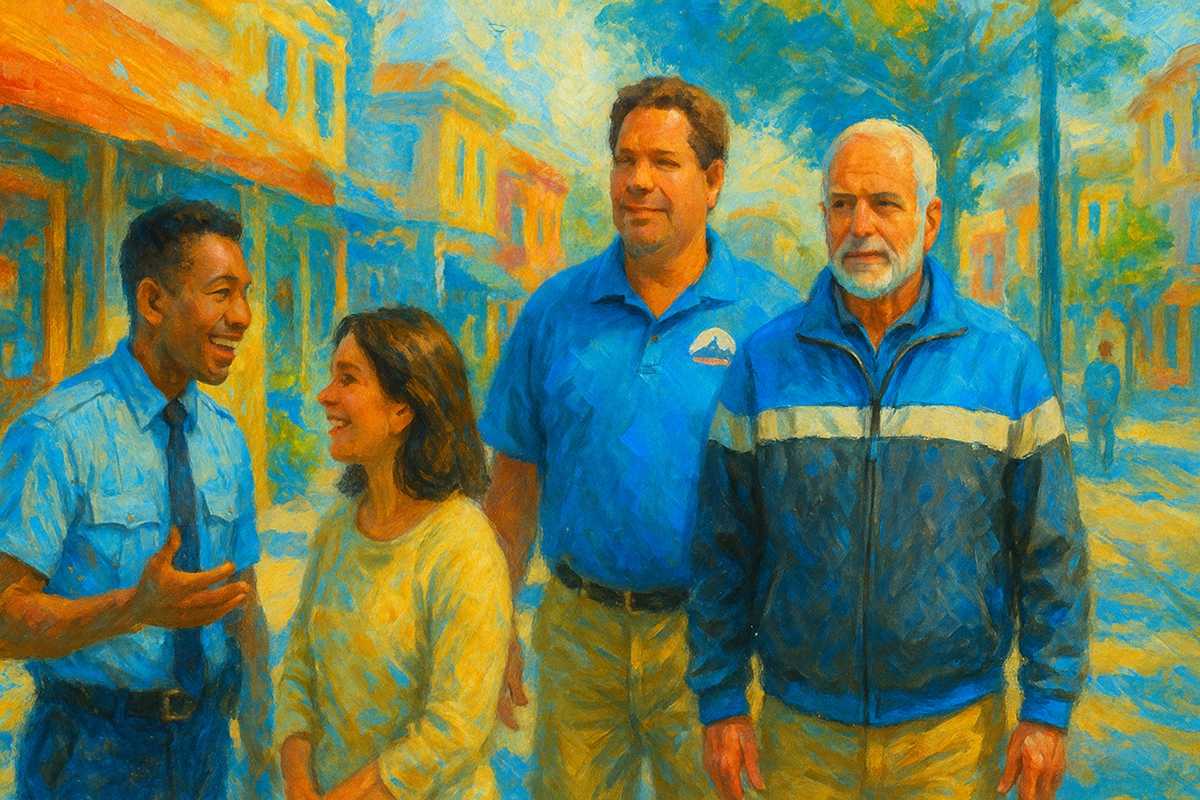SFPD launches safety ambassador pilot in Fillmore and Hayes Valley
August 08, 2025
Four retired officers will patrol the neighborhoods as unarmed ambassadors to support small businesses facing safety concerns.

The Facts
San Francisco is testing a new police-ambassador program in the Western Addition and Hayes Valley, sending retired officers to serve as the “eyes and ears” for merchants worried about safety, according to Natalia Gurevich at The Examiner. The initiative is in response to small business owners who have suffered harassment, vandalism, and crime for years, most recently highlighted by the vandalism of Minnie Bell’s Soul Movement restaurant.
The pilot program places two retired officers in each neighborhood to patrol, observe, and report incidents via police radio. Ambassadors are unarmed and cannot make arrests but can quickly connect with nearby SFPD units. The initiative was launched through collaboration between District 5 Supervisor Bilal Mahmood, Mayor Daniel Lurie, and the SFPD.
Officials say the program is funded from SFPD’s budget and will run on a trial basis while they determine optimal schedules. Similar ambassador efforts already operate in Chinatown and the Castro.
The Context
Western Addition merchants have voiced growing frustration over safety conditions, particularly after the Fillmore Safeway closed. Meanwhile Hayes Valley residents and merchants have experienced rising crime due to the crackdown in the Tenderloin pushing criminal activity into other neighborhoods.
The ambassadors are meant to reduce the workload on patrol officers while providing a visible deterrent. If the pilot proves effective, it could be expanded or made permanent.
The GrowSF Take
Eyes on the street means less crime on the street. This pilot program is a smart, quick-response solution to support small businesses without pulling patrol officers off other calls. While it’s no substitute for a fully staffed police department, visible safety ambassadors can help restore confidence for merchants and customers alike. If it works here, it should be scaled to other commercial corridors dealing with similar challenges. San Francisco’s recovery depends on making every neighborhood feel safe to shop, dine, and do business.
Generate a Personalized Email to the Board of Supervisors
To:
Sign up for the GrowSF Report
Our weekly roundup of news & Insights